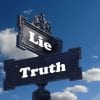What You Need to Know About Business Disparagement Claims
Negative reviews of products or services can hurt businesses, but when they are honest, these reviews can also provide key insights into how to improve. When a review or other claim is false, however, it’s a cloud with no silver lining – just damage.
False claims that harm an individual’s reputation, and the damages that result, can often be addressed by filing a civil lawsuit for defamation. When the entity harmed is a business, a similar claim can be filed: one for “business disparagement.”
Like a defamation claim against a public individual, a business disparagement claim must establish that:
- The statement made was false,
- The statement was “disparaging,”
- “Actual malice” was involved in making the statement,
- The business suffered damages as a result, and
- The person who made the statement had no protective privilege to do so.
Unlike a defamation claim involving an individual, however, the focus of the argument is not on the business’s reputation. Rather, it is on the economic losses to the business as a result of the false claim.
As in certain other types of defamation claims, in a business disparagement claim, the statement at issue must have been made with “actual malice.” Despite the name, “actual malice” doesn’t involve hatred or revenge. Instead, “actual malice” occurs when a person makes a claim despite either knowing the claim is false or recklessly disregarding the chance that the statement is false.
A business disparagement claim may be defeated, however, if the person who made the statement enjoys an absolute or conditional privilege that protects the speaker or the statement.
“Absolute” privileges fall into only a handful of categories. For instance, statements made during a legislative or judicial proceeding typically enjoy absolute privilege. “Conditional” privileges are broader, and they are often incident-specific. In other words, whether a conditional privilege exists depends on what was said, who said it, why they said it, and where, when, and how the statement was made.
Not every negative business review offers grounds for a business disparagement claim. But when negative, false rumors start to spread for no other purpose than to harm your business, talk to the attorneys at Shaw Cowart. We can help you with your claim.
